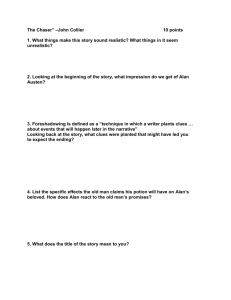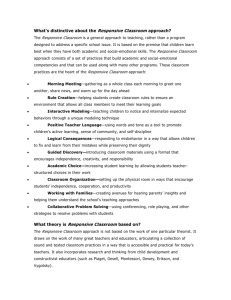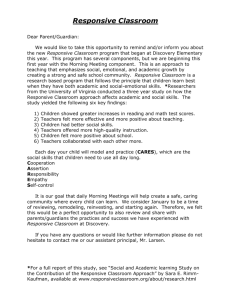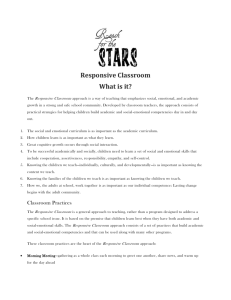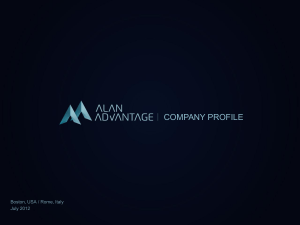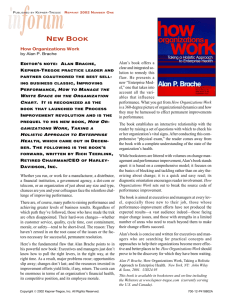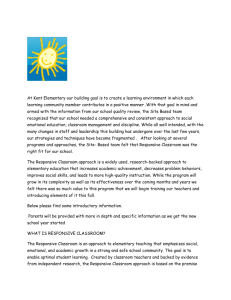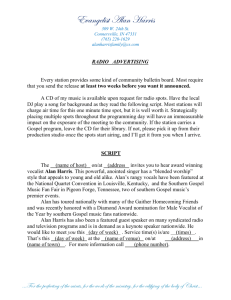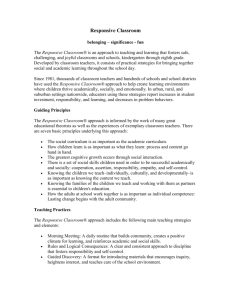Responsive - VirtualFieldwork.org
advertisement
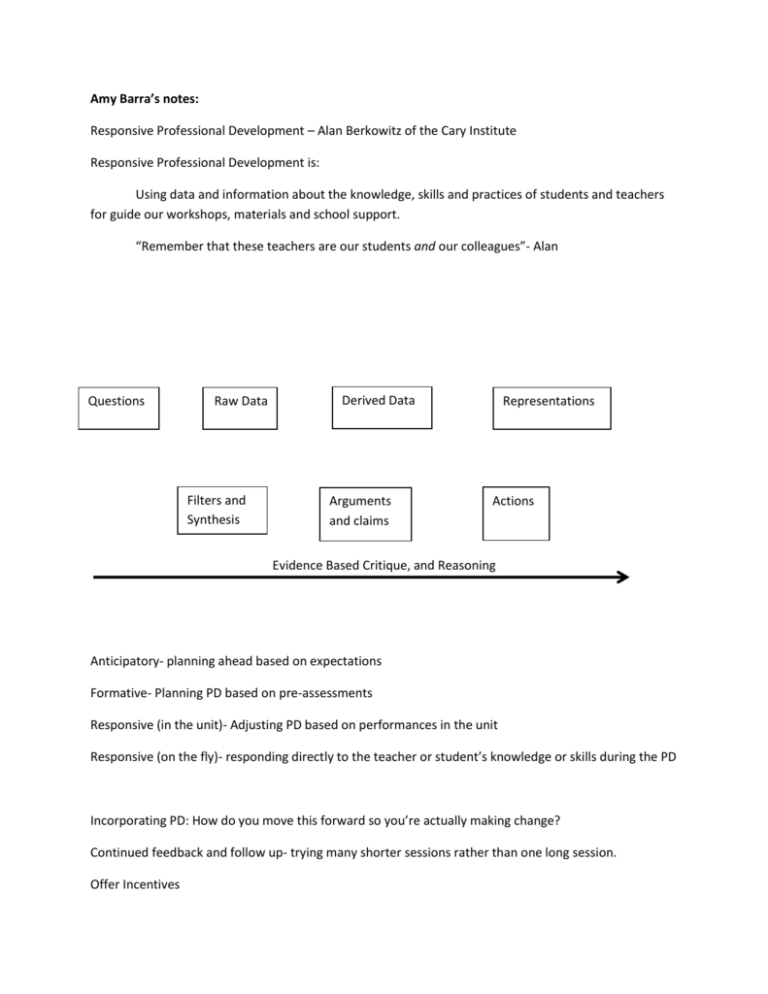
Amy Barra’s notes: Responsive Professional Development – Alan Berkowitz of the Cary Institute Responsive Professional Development is: Using data and information about the knowledge, skills and practices of students and teachers for guide our workshops, materials and school support. “Remember that these teachers are our students and our colleagues”- Alan Questions Raw Data Filters and Synthesis Derived Data Arguments and claims Representations Actions Evidence Based Critique, and Reasoning Anticipatory- planning ahead based on expectations Formative- Planning PD based on pre-assessments Responsive (in the unit)- Adjusting PD based on performances in the unit Responsive (on the fly)- responding directly to the teacher or student’s knowledge or skills during the PD Incorporating PD: How do you move this forward so you’re actually making change? Continued feedback and follow up- trying many shorter sessions rather than one long session. Offer Incentives Be aware of administration conflicts Go into the classroom to observe the teachers Understand what teachers and students need and want Produce materials for teachers and students* *has been met with mixed results Jennifer Trimber’s notes: Best Practices in Marcellus Shale Education Notes from Group 3, March 18th 2:30PM March 18 & 19, 2013 Snee Hall, Cornell Univ. Alan Berkowitz; the Cary Institute “Using data and information about the knowledge, skills and practices of students and teachers to guide our workshops, materials and in-school support.” Alan offered a challenge to the members of the group. He asked us to break into subgroups and list what you need to know to come up with a really good answer to the question: What do the teachers need to know to be effective at fostering environmental science? My group came up with the following criteria: background of teacher, who they are working for, there location within the country, world, what type of education institute they are working for, the timeframe of the lessons, what motivates the teachers (incentives), and how comfortable is the educator with the topic. A.Berkowitz provided one definition of Env. Science: The capacity to understand and participate in evidence based system. Claims Evidence Reasoning content,skills, knowledge Learning Knowledge pedagological knowledge and skills (how people learn) Alan modeled responsive teaching -Anticipatory planning based on expected capacities and needs -Formative planning based on pre assessments -Responsive-adjusting based on performance, done on-the –fly. Responding directly to teachers knowledge and skills during the professional development One question from the group was how do you move a glorious idea of environmental literacy forward, off the shelf? Some answers included instead of one workshop, lots of repeated workshops, webinars, and good food. Another point was made that teachers have a great deal of constraints placed on them. Also within the discussion the point was made that we should not only examine why teachers might not have taken action on suggestions, but why were the 3% who were able to move on the suggestions successful.
